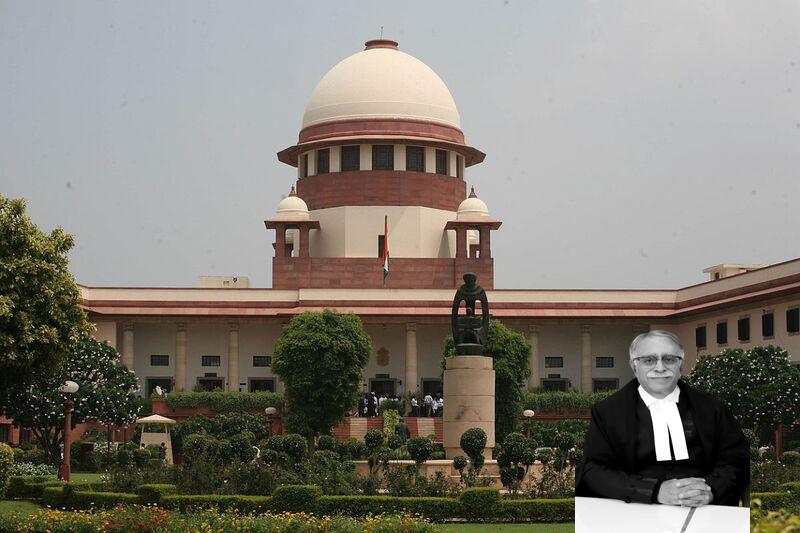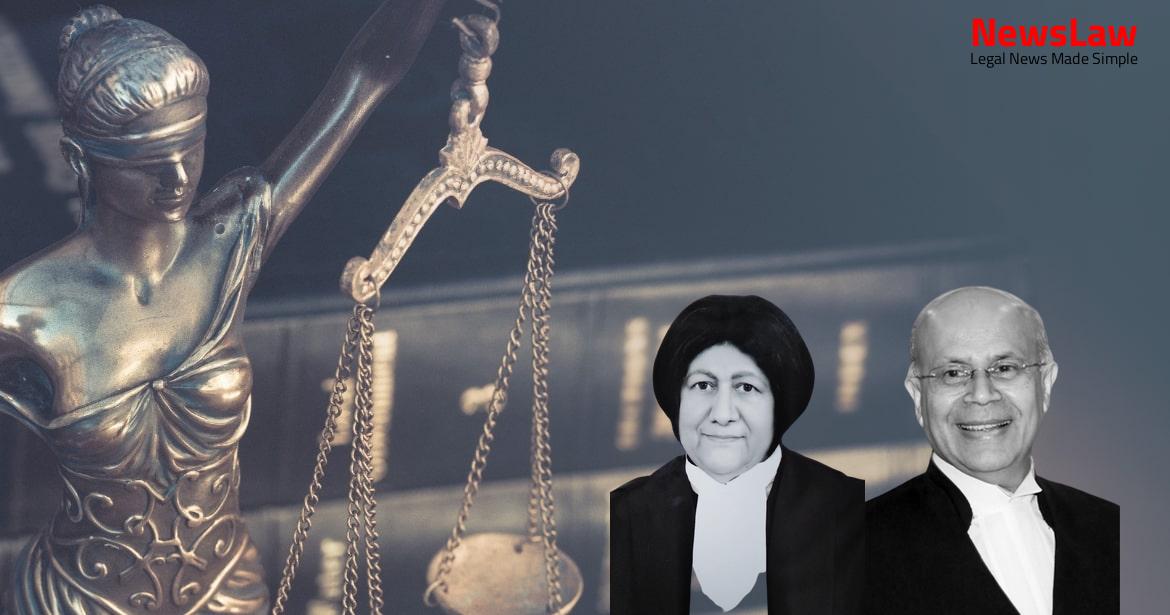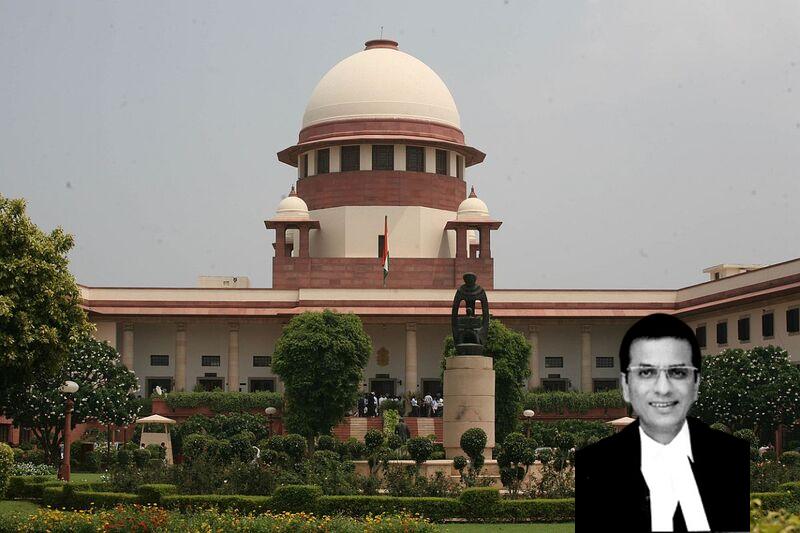B)
Contingently, if the Limitation Act does not apply then, in the absence of Limitation being placed within the text of the Statute in question, could the Appeal filed against the Order of the Commissioner of Payments be held as maintainable having been filed after a period of nearly three years from the said order? By letter dated 16 July 1997, the Claimant – Appellants, under protest, accepted the payment of principal amount in full. 3 Aggrieved by the non-payment of such interest claimed, a Writ Petition before the High Court was filed seeking direction to the Commissioner to consider an award interest on the principal amount due. The ground of assail was that the amount payable against the bills pending, have already been paid and therefore no ground for re-calculation of interest is made out. The Learned Single Judge in Civil Review, examined the Limitation Act, 1963 along with various decisions rendered by this Court and concluded, after detailed consideration that since an Appeal under Section 22 (8) has been provided to a Principal Court of Civil jurisdiction without being restricted by a period of Limitation it would be treated as an Appeal provided under the Code, that is the Code of Civil Procedure, to a Court subordinate to that of a High Court and to such an Appeal, the period of Limitation as prescribed under Article 116 of the Limitation Act, 1963 would apply.
In the instant facts therefore, the conclusion was that the Appeal was erroneously admitted by the District Judge and the same to have been dismissed as not maintainable on the ground of limitation.
Further it is submitted that the Order dated 13 April 2005 which was the Order against which the subject Appeal had been filed, was an Order passed by an executive officer who is neither a Court nor a Civil Court as recognised in Law. 4
It is further submitted that without prejudice to the contentions made, even if it is concluded that Article116 of the Limitation Act would apply or that the time period to file Appeal would be “a reasonable period”, the matter may be remanded to the District Judge, as the Principal Civil Court of Original jurisdiction (being the Appellate Court herein) for consideration of the application under Section 5 of the Limitation Act. 1 The Act provides for an Appeal from the Order passed by the Commissioner of payments to lie to a principal Civil Court of original jurisdiction which, by all intent and purposes is governed by the Court. It is submitted that the delay in Condonation Application, which states that it was only then that the Appellant came to know of the provisions of Section 22(8) of the Jogighopa Act, amounts to ignorance of Law which is not an excuse permissible. “Section 2(2)
“Decree” means the formal expression of an adjudication which, so far as regards the Court expressing it, conclusively determines the rights of the parties with regard to all or any of the matters in controversy in the suit and may be either preliminary or final. It may be partly preliminary and partly final.”
“Section 2(14) “order” means the formal expression of any decision of a Civil Court which is not a decree.” The Indian Evidence Act, 1872 defines the word “Courts” as under:- “ 3…..“Court”.––“Court” includes all Judges and Magistrates, and all persons, except arbitrators, legally authorised to take evidence.” However, this Court in State of M.P v. The Court approved the rule laid down in these cases that in order to constitute a court in the strict sense of the term, an essential condition is that the court should have, apart from having some of the trappings of a judicial tribunal, power to give a decision or a definitive judgment which has finality and authoritativeness which are the essential tests of a judicial pronouncement.” Article 116 of the Limitation Act provides the period of limitation for an appeal, a) to a High Court i.e., 90 days from the date of order/decree; and b) to any other court from an order, 30 days from the date of order/decree. In each of these three decisions, the respective High Courts were tasked with the question of application of Article 156 of the Limitation Act (now Article 116 ) to the Burma Court’s Act, the Provincial Insolvency Act, 1907 and Land Acquisition Act, 1894 respectively. Similar to the above said decisions of the High Courts this Court in the said decision was also dealing with a statute which expressly made applicable, the provisions of the code. The relevant portion of which reads as under: – “(6) The commissioner shall have the power to regulate his own procedure in all matters arising out of the discharge of his functions, including the place or places at which he will hold his sittings and shall, for the purpose of making an investigation under this Act, have the same powers as are vested in a Civil Court under the Code of Civil Procedure, 1908, in respect of the following matters, namely:- (a) The summoning and enforcing the attendance of any witness and examining him on Oath : (b) the discovery and production of any document or other material object producible as evidence ; (c) the reception of evidences on affidavits; (d) the issuing of any commission for the examination of witness.”
A perusal of the above extracted section of the Jogighopa Act makes sufficiently clear the commissioner “for the purpose of making and investigation under this act” shall have the powers vested in “a civil court” under the Code to the limited extent as mentioned in (a), (b), (c), (d). The application thereof is also equally well circumscribed therein, the Commissioner has been deemed to be a Civil Court for the purposes of Section 195 and Chapter XXVI of the Code of Criminal Procedure, 1973. clearly testifies to the intent of the state legislature to specifically restrict the application of both the said codes, to only the extent provided.
Therefore, it is clear from the above extracted decision that the vesting of select few powers upon a Tribunal, or as in the present case, a statutory authority, does not equate the same to be a Court within the meaning of the code. We must consider now, the contention of the respondent that by virtue of Section 22 (8) providing for an appeal to a court of Original Civil Jurisdiction thereby the appeal being brought under the code, implies that the Jogighopa Act itself shall be governed by the code. The conclusion which beckons then is that the period of limitation mentioned under such article of the Limitation Act shall not apply to Section 22 (8) of the Jogighopa Act. It is trite that if no period of limitation has been prescribed, statutory authority must exercise its jurisdiction within a reasonable period. State of Karnataka, this Court referred to a number of decisions to reiterate that where the statute in question does not prescribe a limitation, the rights conferred therein must be exercised within reasonable time.
In light of above discussion, it is clear that when a Court is seized of a situation where no limitation stands provided either by specific applicability of the Limitation Act or the special statute governing the dispute, the Court must undertake a holistic assessment of the facts and circumstances of the case to examine the possibility of delay causing prejudice to a party. In determining the question at hand, it would also be useful to take note of the statutory scheme of the Jogighopa Act. Section 19 states that every person having a claim to payments under the schedule shall make a claim before the Commissioner within a period of 30 days from specified date. The appeal before the District Judge, under section 22(8) of the Jogighopa Act, came to be filed thereafter and the order in question was passed on 5 November 2008.
The questions raised in this appeal are answered as under- 30.1 The Jogighopa (Assam) Unit of Ashok Paper Mills Limited (Acquisition Transfer of Undertaking) Act, 1990, is not governed by the prescription of limitation under Article 116 of the Limitation Act, 1963, as the appeal thereunder, from an order of the Commissioner of payments cannot be said to be an appeal under the Code of Civil Procedure, 1908 for the Legislature of the State of Assam has been categorical in limiting the application of the code to certain aspects of the Act only. 2
Case Title: M/S NORTH EASTERN CHEMICALS INDUSTRIES (P)LTD. Vs. M/S ASHOK PAPER MILL ( ASSAM) LTD
Case Number: C.A. No.-002669-002669 / 2013



